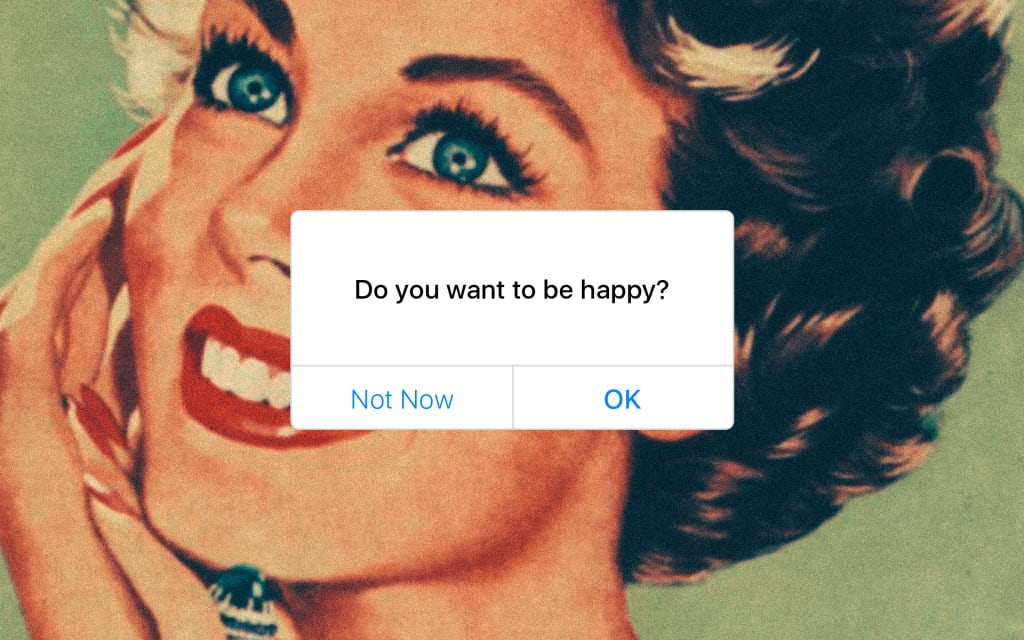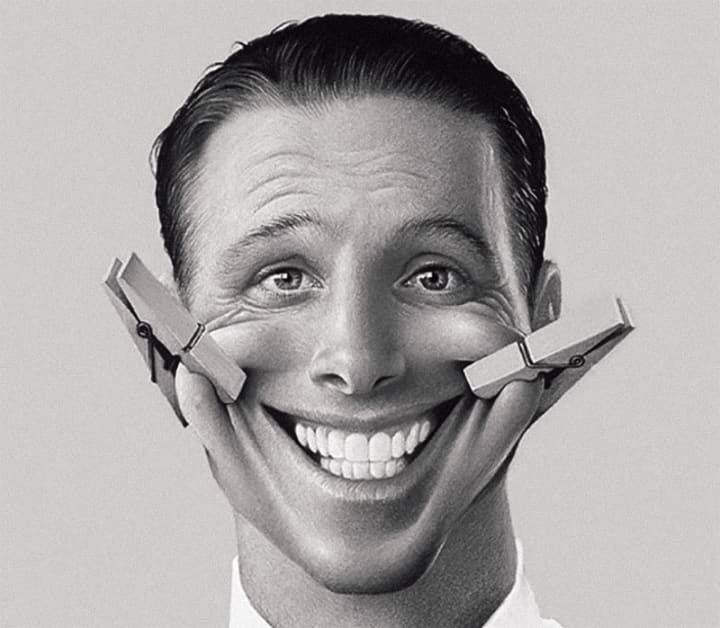I Just Want to Be Happy. Or Do I?
Welcome to Happiness Industry, USA

As a society, we have accepted the belief that emotions disrupt rational thought, and any state other than happiness is a mental inconvenience or imbalance. This causes us to chase after pleasure, instant gratification and external validation instead of examining our inner world and what it is that we truly want. When something upsets us, we distract ourselves. We rarely face the issue and figure out a way to fix it.
How did things become so unbalanced?

In the 18th century, economist and Utilitarianism founder Jeremy Bentham asserted that societies and individuals should act with a universal goal of the "greatest happiness for the greatest number.” This notion spread like wildfire, influencing our present day mindset, making unhappiness comparable to the plague in today’s world. If we should ever feel sad, there is a fleet of options at your disposal: psychologists, counselors, doctors, help gurus, and human resources demand that we retain a positive outlook on life. If we can’t, they’ll encourage prescription drugs to help get us there.
It’s questionable advice to "just be happy" or "just accept" a situation that causes upset—yet this is our go-to mantra. Happiness is a personal responsibility, an endless struggle in the mind. I am not attempting to glorify depression, but I do believe we should accept and integrate these feelings with the understanding that they help our brain process reality in a healthy way.
Anger makes us more acutely aware of what's around us; sadness is a form of disempowering. Experiencing these emotions allows us to become better people, capable of feeling a more robust and truer happiness. Happiness isn't merely a pursuit of pleasure, but a pursuit of virtue and justice.
We need to analyze why maintaining happiness is seen as the pinnacle of our society. We need to realize that major corporations, advertising agencies and the media are manipulating happiness in their favor. They stunt us from exploring why the current status quo causes us discomfort and they prohibit us from questioning the system. This has a ripple effect, deflecting attention from economic and political problems as we numb our feelings in attempt at superficial happiness. After all, as the saying goes - “happiness is critique turned inward.”
About the Creator
Sarah McDaniel
Bringing the strange and scientific to your smartphone. @krotchy







Comments
There are no comments for this story
Be the first to respond and start the conversation.